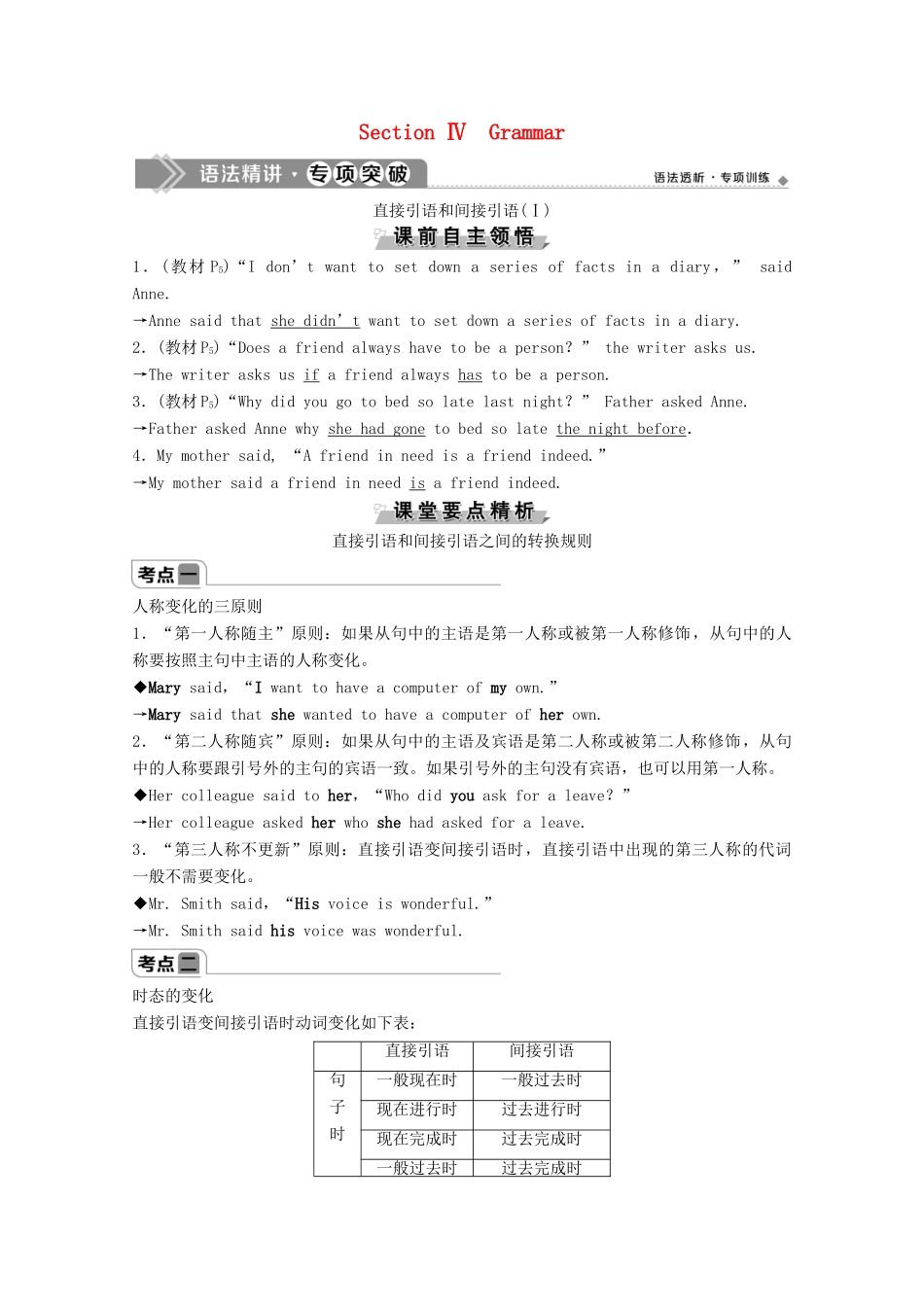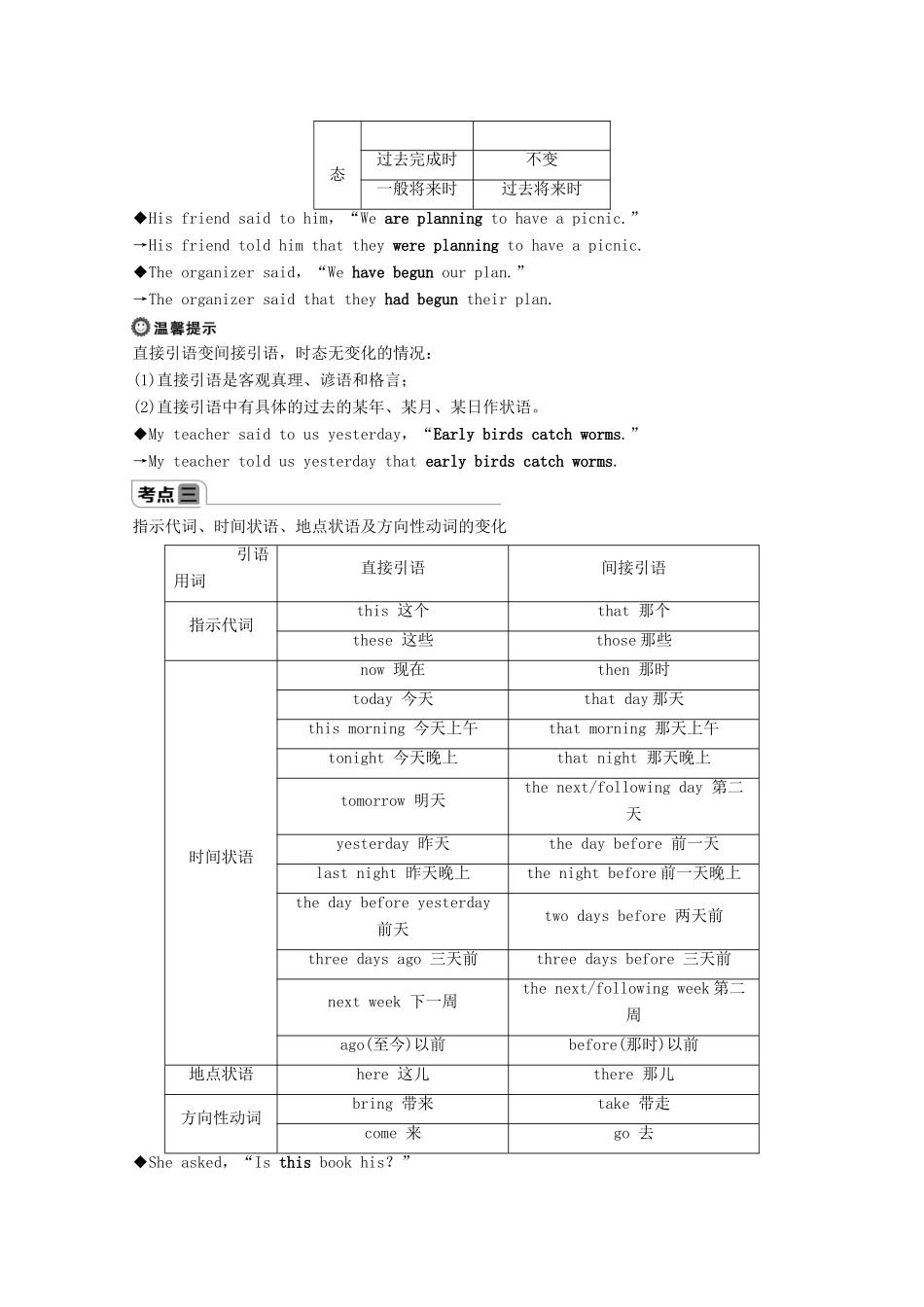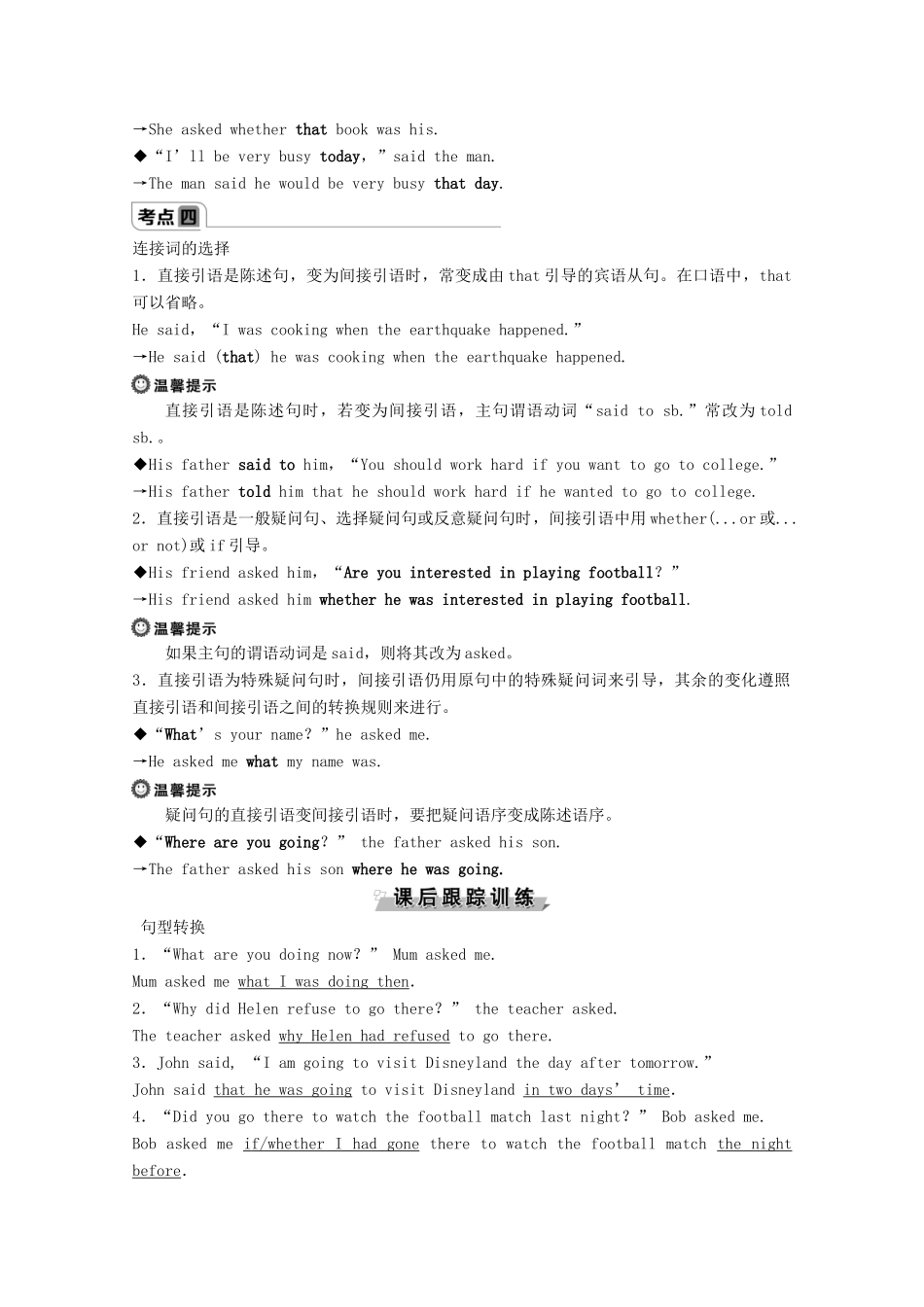Section Ⅳ Grammar直接引语和间接引语(Ⅰ)1.(教材 P5)“I don’t want to set down a series of facts in a diary,” said Anne.→Anne said that she didn ’ t want to set down a series of facts in a diary.2.(教材 P5)“Does a friend always have to be a person?” the writer asks us.→The writer asks us if a friend always ha s to be a person.3.(教材 P5)“Why did you go to bed so late last night?” Father asked Anne.→Father asked Anne why she had gone to bed so late the night before.4.My mother said, “A friend in need is a friend indeed.”→My mother said a friend in need is a friend indeed.直接引语和间接引语之间的转换规则人称变化的三原则1.“第一人称随主”原则:如果从句中的主语是第一人称或被第一人称修饰,从句中的人称要按照主句中主语的人称变化。◆Mary said,“I want to have a computer of my own.”→Mary said that she wanted to have a computer of her own.2.“第二人称随宾”原则:如果从句中的主语及宾语是第二人称或被第二人称修饰,从句中的人称要跟引号外的主句的宾语一致。如果引号外的主句没有宾语,也可以用第一人称。◆Her colleague said to her,“Who did you ask for a leave?”→Her colleague asked her who she had asked for a leave.3.“第三人称不更新”原则:直接引语变间接引语时,直接引语中出现的第三人称的代词一般不需要变化。◆Mr. Smith said,“His voice is wonderful.”→Mr. Smith said his voice was wonderful.时态的变化直接引语变间接引语时动词变化如下表:直接引语间接引语句子时一般现在时一般过去时现在进行时过去进行时现在完成时过去完成时一般过去时过去完成时态过去完成时不变一般将来时过去将来时◆His friend said to him,“We are planning to have a picnic.”→His friend told him that they were planning to have a picnic.◆The organizer said,“We have begun our plan.”→The organizer said that they had begun their plan.直接引语变间接引语,时态无变化的情况:(1)直接引语是客观真理、谚语和格言...


